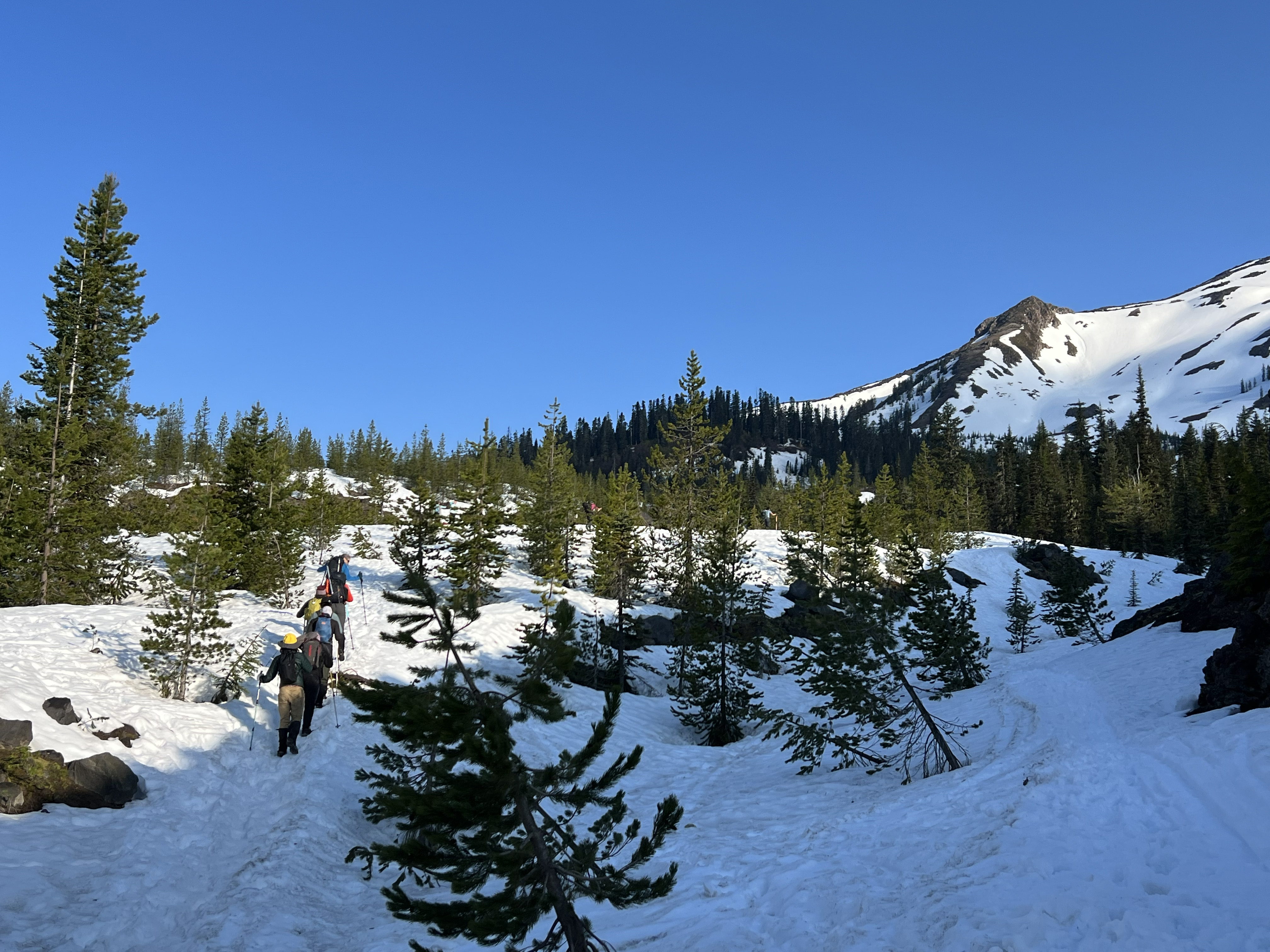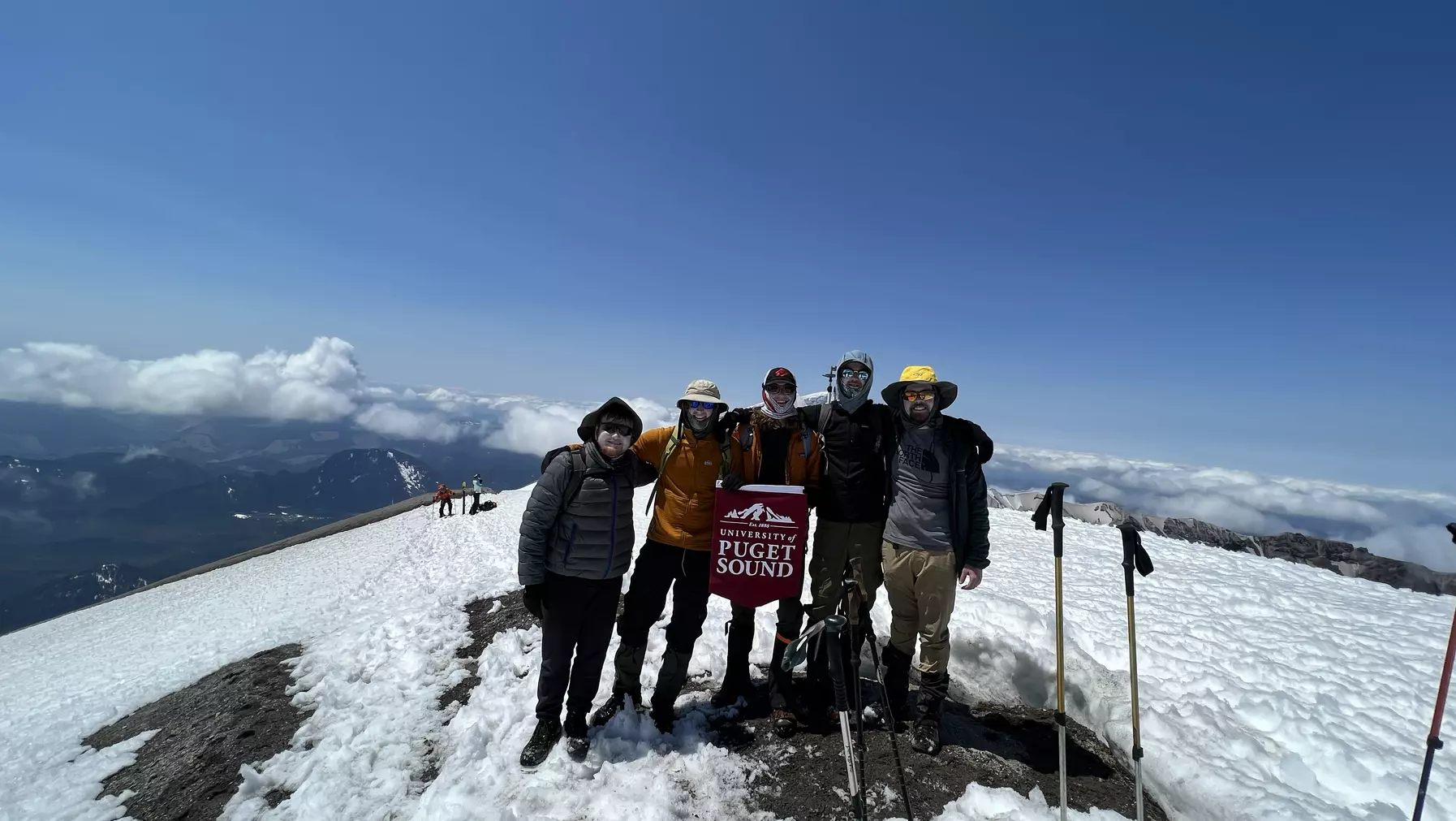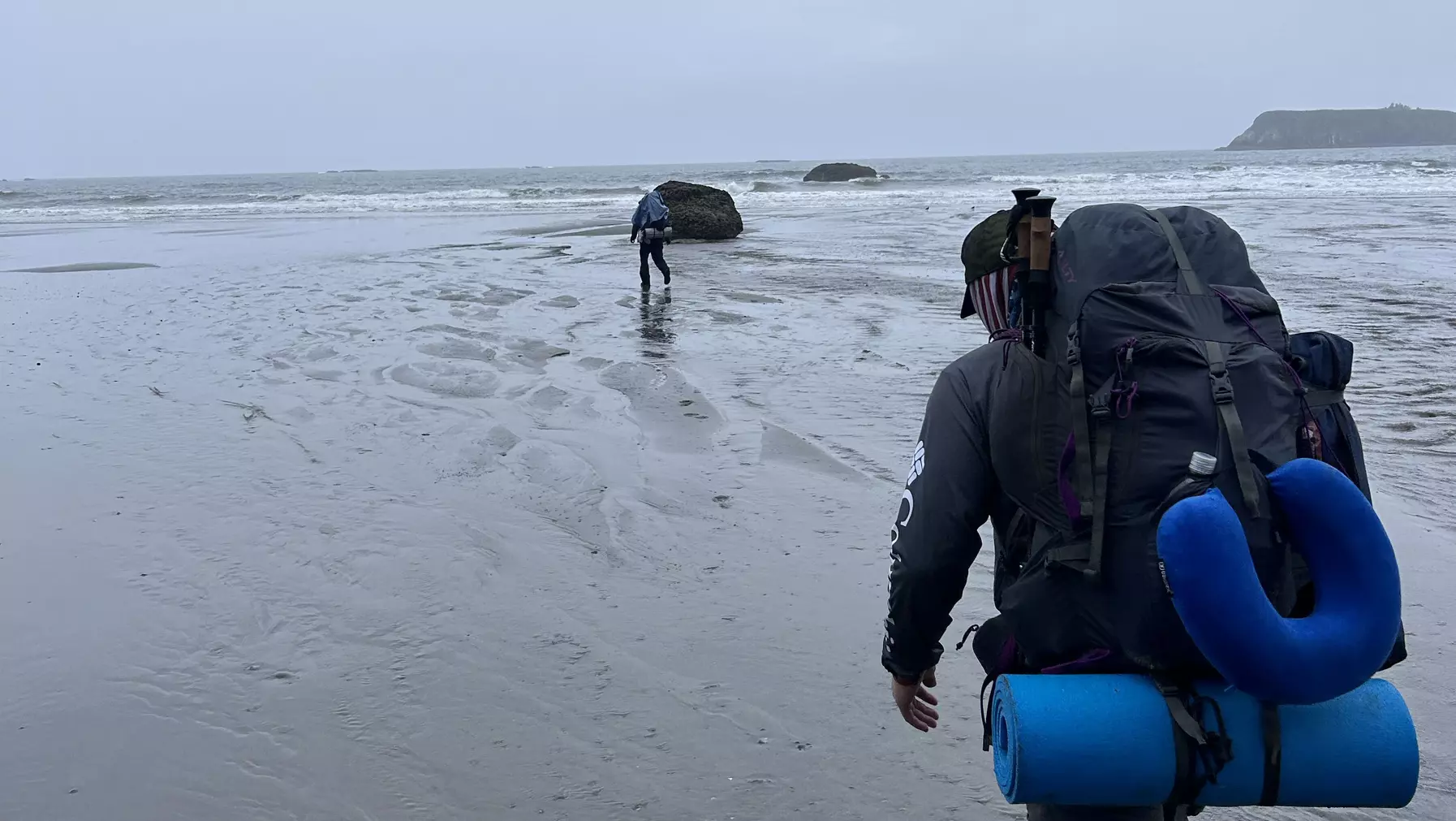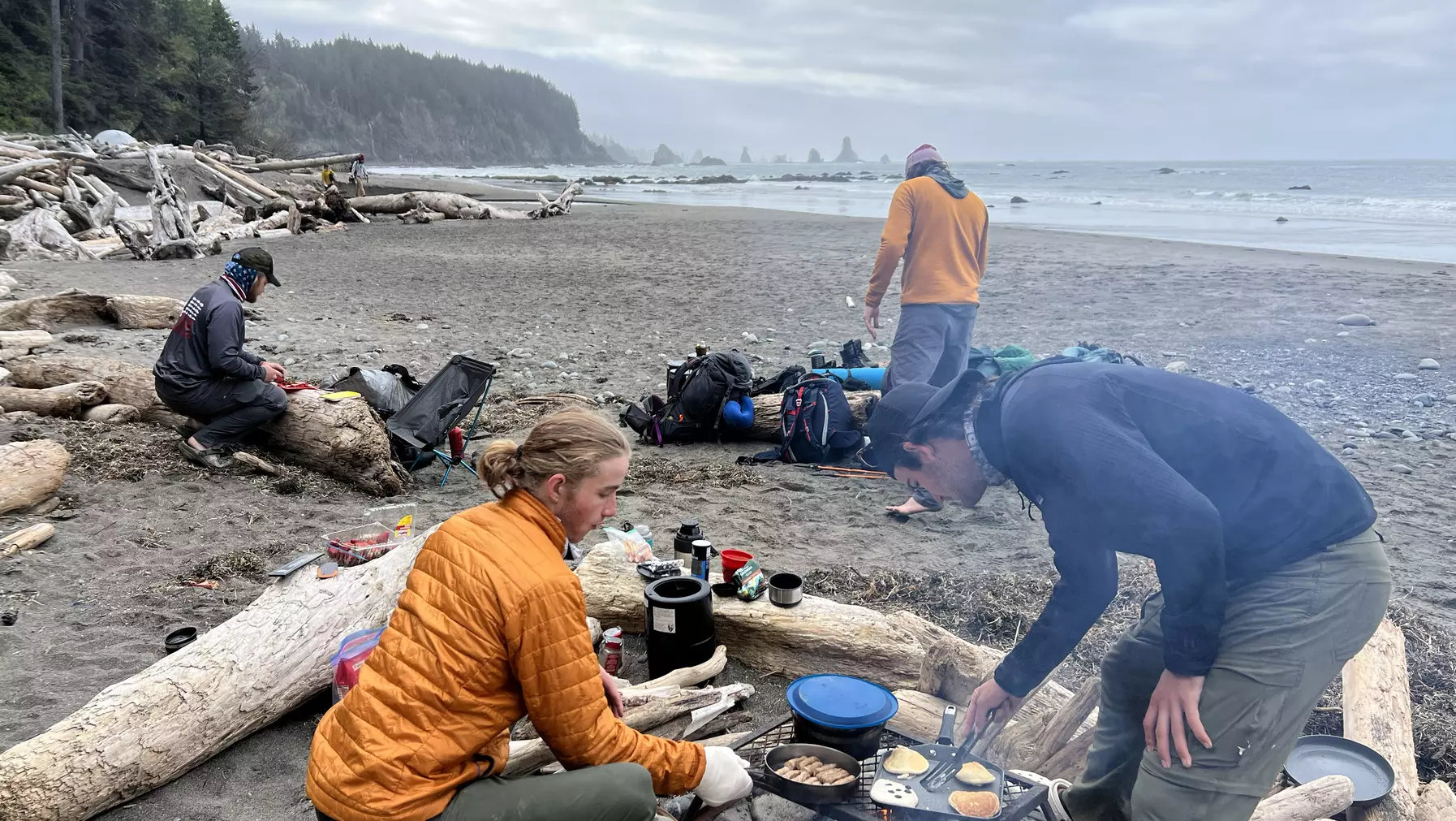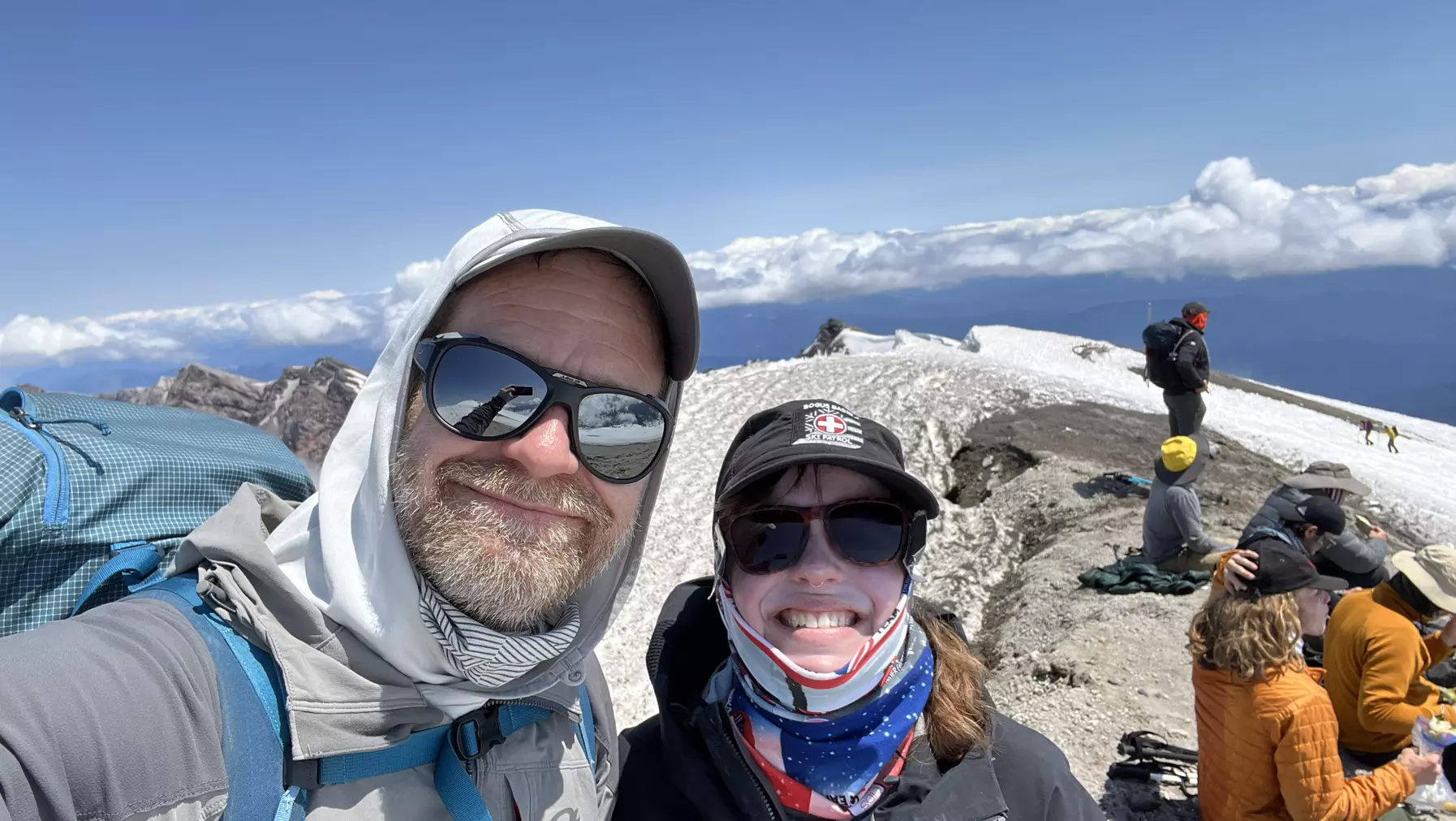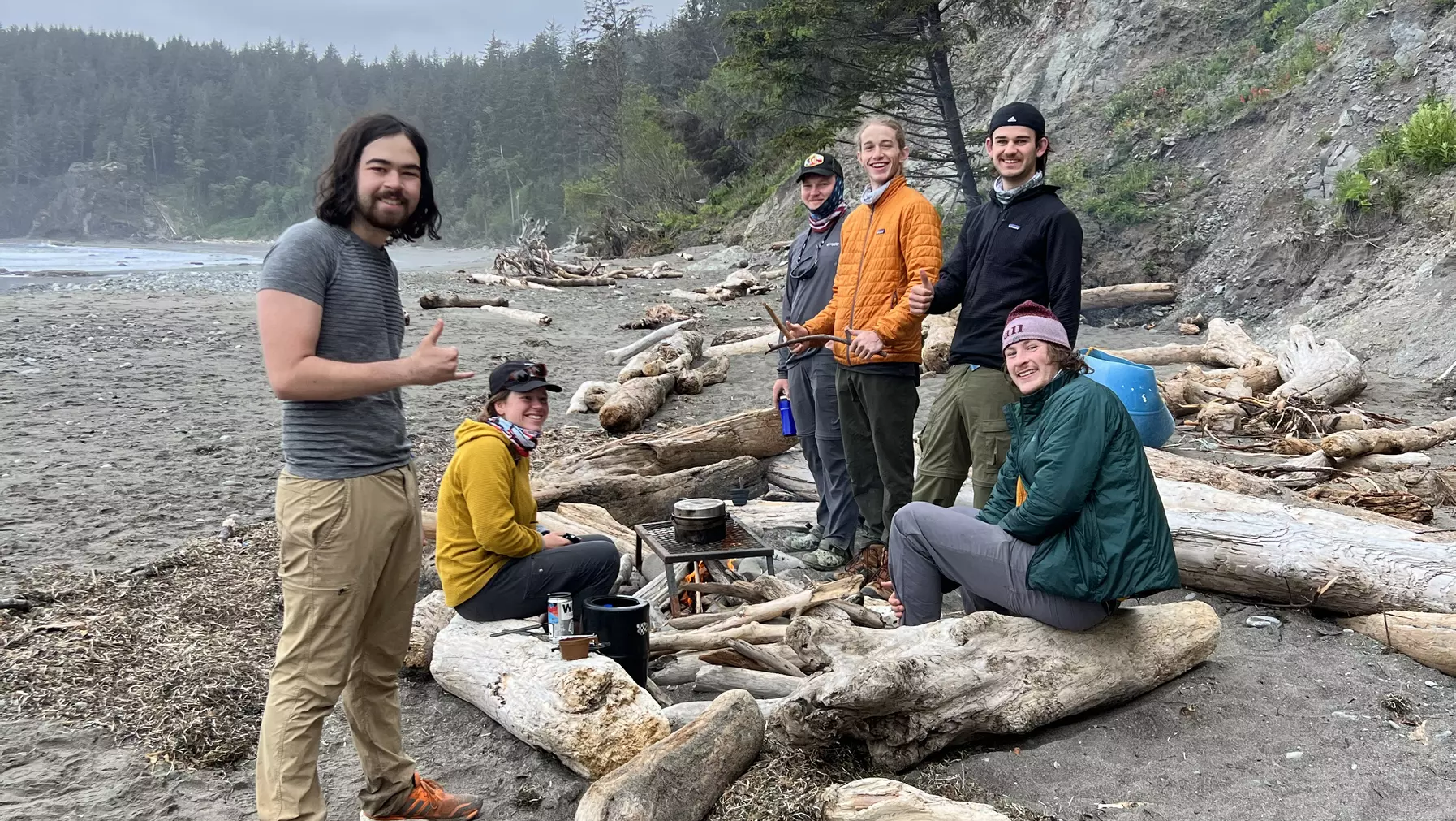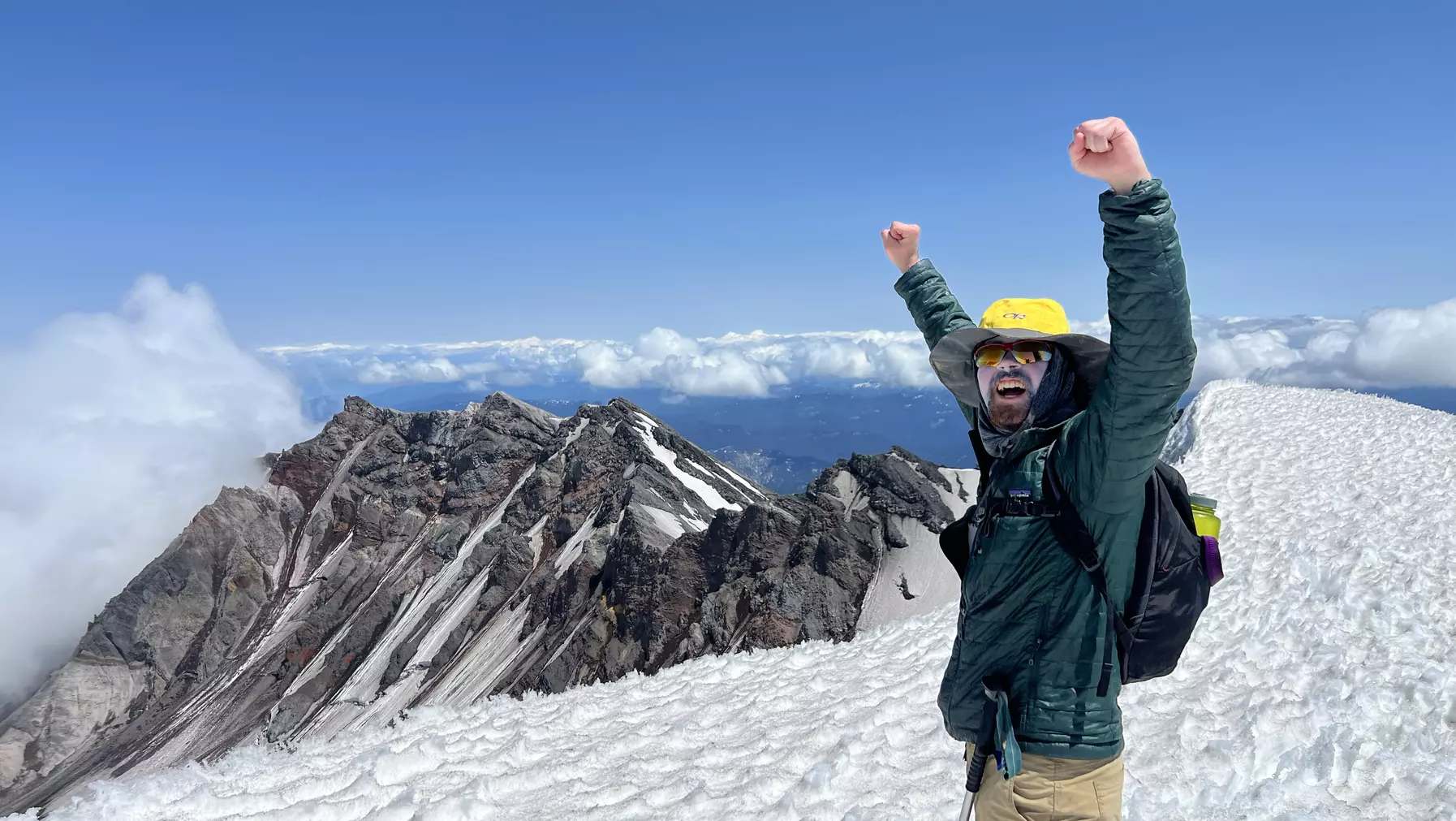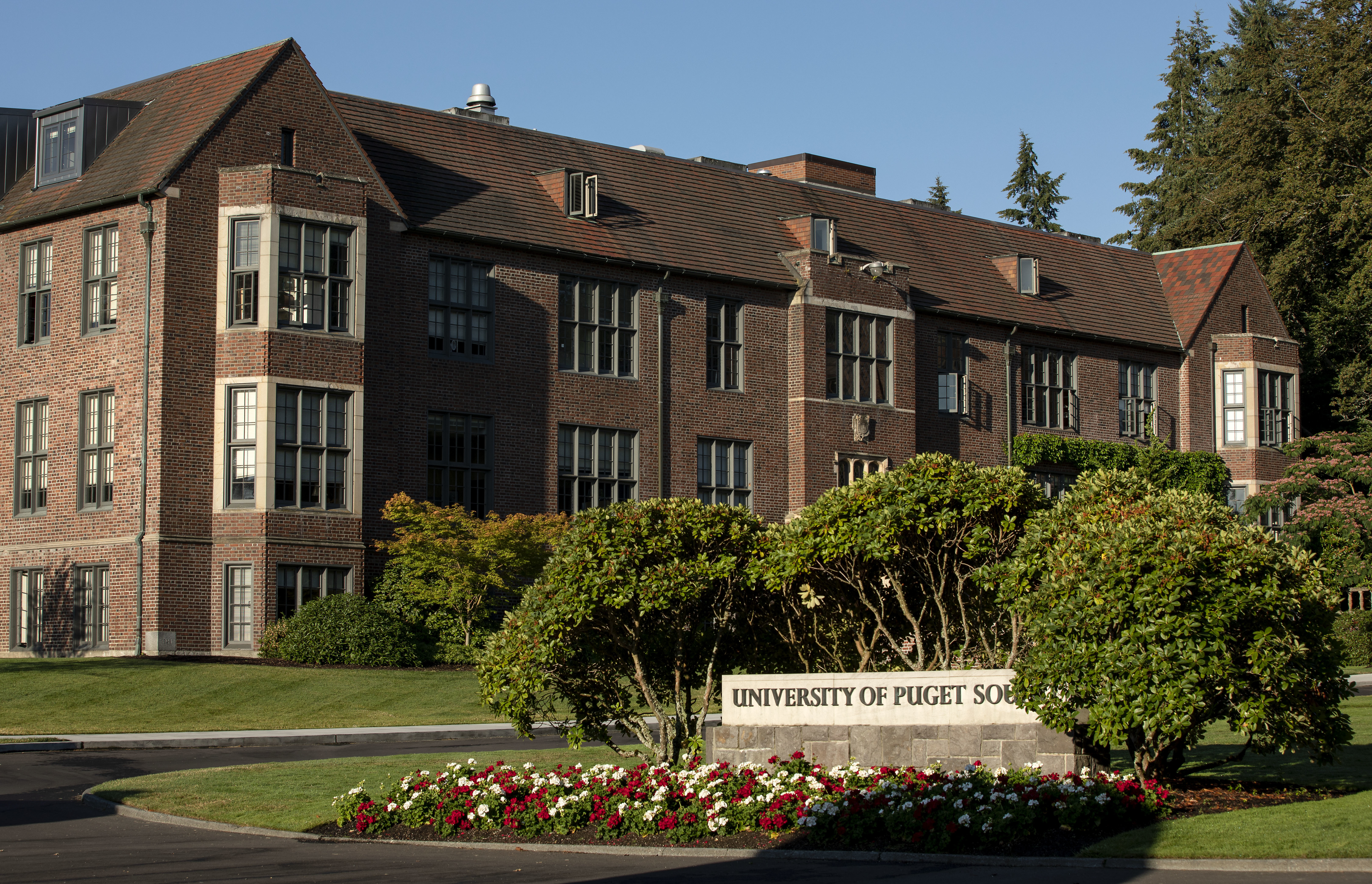Students spent a week engaged in outdoor education while hiking across the Olympic Peninsula.
This summer, a small group of University of Puget Sound students spent a week backpacking across the Olympic Peninsula, challenging themselves physically and mentally—and learning about the ecosystems of the Pacific Northwest in the process.
The brainchild of Registrar Michael Pastore, the PacTrail program was envisioned as a Washington-based equivalent to Puget Sound’s long-running PacRim program. Instead of traveling around Asia, PacTrail participants hiked a section of the Pacific Northwest Trail, which connects Glacier National Park in Montana to La Push on Washington’s Pacific Coast.
“I love using the wilderness as, essentially, a classroom,” said Hannah Robideaux ’17, program coordinator for the Sound Policy Institute, who used her extensive experience as an outdoor educator and river guide to design and lead the PacTrail trip. “There’s something so tangible about being there and seeing these ideas in practice. It gives students more space to think about how they’re engaging with the world around them.”
PacTrail is offered as a course open to all students to fulfill their experiential learning requirement. The program is facilitated by the Sound Policy Institute, a Puget Sound initiative that brings the campus and wider South Sound community together for experiential teaching and learning about environmental issues.
